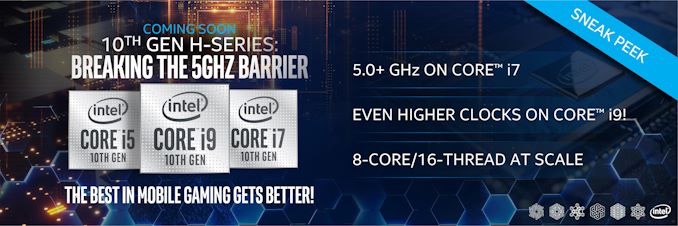
Intel at CES shared details on its upcoming 10th-generation 45W "Comet Lake" chips, which could be slated for future 16-inch MacBook Pro models.
As highlighted by AnandTech, the new 10th-generation chips will be built on the 14++nm architecture and will reach higher than ever speeds. The Core i7 chips will hit 5GHz speeds, while the Core i9 models will exceed 5GHz.

Intel hasn't shared additional details on the chips yet, but AnandTech speculates that Intel will introduce Turbo Boost Max 3.0 and Velocity Boost technology to the chips.
There are already a few manufacturers such as Acer and Lenovo that have announced support for the new 45W chips, and Intel believes the hardware will be coming to the market soon, so these may be the chips Apple will use in a 2020 16-inch MacBook Pro refresh.
Article Link: Intel Unveils 10th-Generation 'Comet Lake' Chips With Speeds Over 5GHz
Last edited:


